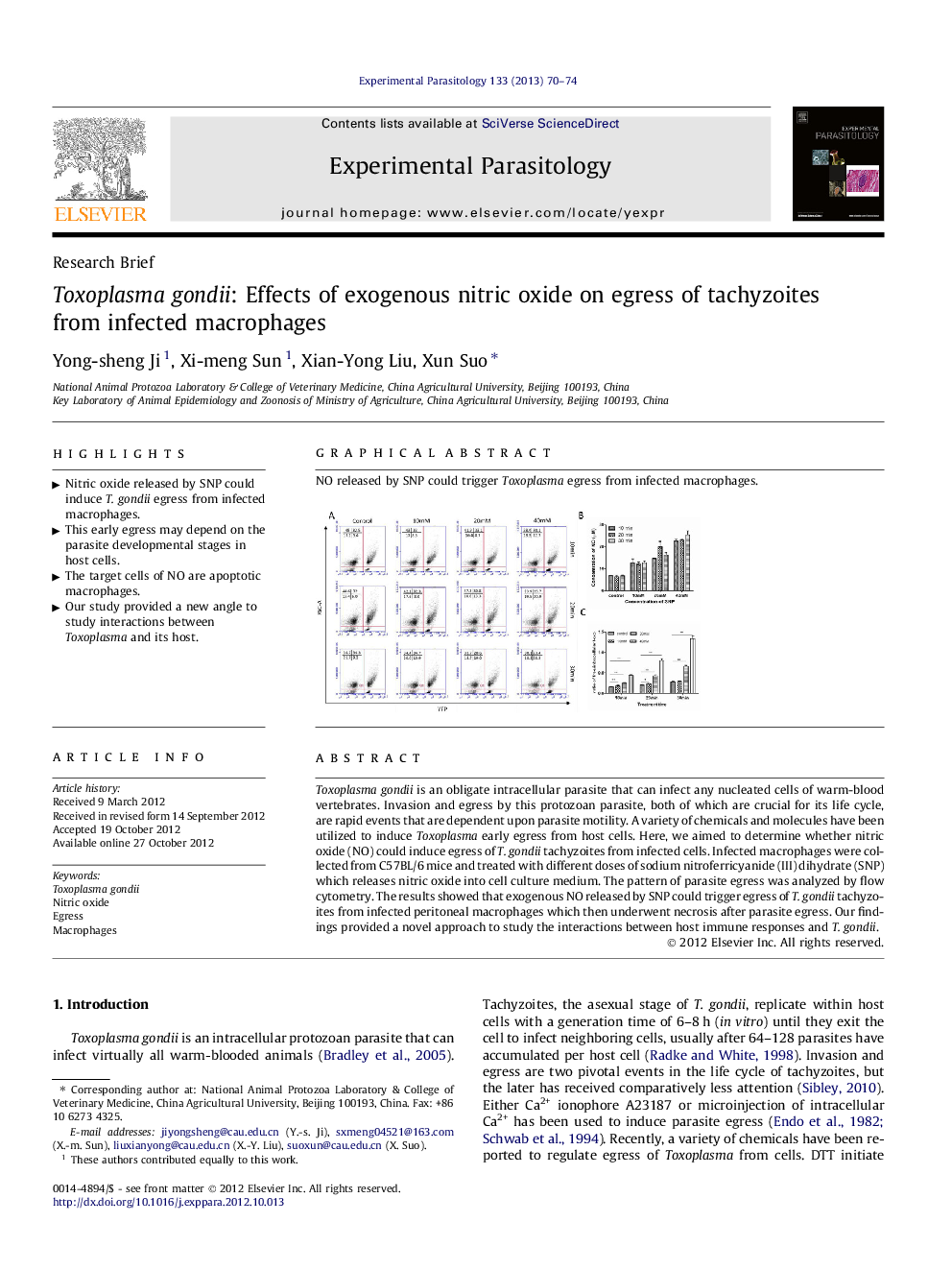| Article ID | Journal | Published Year | Pages | File Type |
|---|---|---|---|---|
| 4371201 | Experimental Parasitology | 2013 | 5 Pages |
Toxoplasma gondii is an obligate intracellular parasite that can infect any nucleated cells of warm-blood vertebrates. Invasion and egress by this protozoan parasite, both of which are crucial for its life cycle, are rapid events that are dependent upon parasite motility. A variety of chemicals and molecules have been utilized to induce Toxoplasma early egress from host cells. Here, we aimed to determine whether nitric oxide (NO) could induce egress of T. gondii tachyzoites from infected cells. Infected macrophages were collected from C57BL/6 mice and treated with different doses of sodium nitroferricyanide (III) dihydrate (SNP) which releases nitric oxide into cell culture medium. The pattern of parasite egress was analyzed by flow cytometry. The results showed that exogenous NO released by SNP could trigger egress of T. gondii tachyzoites from infected peritoneal macrophages which then underwent necrosis after parasite egress. Our findings provided a novel approach to study the interactions between host immune responses and T. gondii.
Graphical abstractNO released by SNP could trigger Toxoplasma egress from infected macrophages.Figure optionsDownload full-size imageDownload as PowerPoint slideHighlights► Nitric oxide released by SNP could induce T. gondii egress from infected macrophages. ► This early egress may depend on the parasite developmental stages in host cells. ► The target cells of NO are apoptotic macrophages. ► Our study provided a new angle to study interactions between Toxoplasma and its host.
